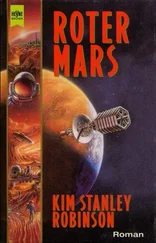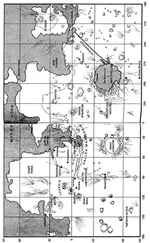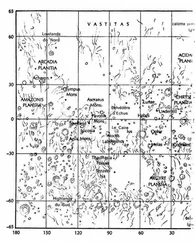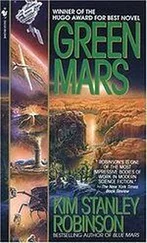1 ...7 8 9 11 12 13 ...148 Frank Chalmers was the exception to all that, however. He spoke five languages, more than anyone else aboard. And he did not fear to use his Russian, even though it was very bad; he just hacked out questions and then listened to the answers, with a really piercing intensity, and a quick startling laugh. He was an unusual American in many ways, Maya thought. At first he seemed to have all the characteristics, he was big, loud, maniacally energetic, confident, restless; talkative and friendly enough, after that first coffee. It took a while to notice how he turned the friendliness on and off, and to notice how little his talk revealed. Maya never learned a thing about his past, for instance, despite deliberate efforts to chat him up. It made her curious. He had black hair, a swarthy face, light hazel eyes— handsome in a tough-guy way— his smile brief, his laugh sharp, like Maya’s mother’s. His gaze too was sharp, especially when looking at Maya; a matter of evaluating the other leader, she assumed. He acted toward her as if they had an understanding built on long acquaintance, a presumption which made her uneasy given how little they had spoken together in Antarctica. She was used to thinking of women as her allies, and of men as attractive but dangerous problems. So a man who presumed to be her ally was only the more problematic. And dangerous. And. . something else.
She recalled only one moment when she had seen further into him than the skin, and that had been back in Antarctica. After the thermal engineer had cracked and been sent north, news of his replacement had come down, and when it was announced everyone was quite surprised and excited to hear that it was going to be John Boone himself, even though he had certainly received more than the maximum radiation dosage on his previous expedition. While the evening room was still buzzing with the news Maya had seen Chalmers come in and be told of it, and he had jerked his head around to stare at his informant; and then for a fraction of a second she had seen a flash of fury, a flash so fast it was almost a subliminal event.
But it had made her attentive to him. And certainly he and John Boone had an odd relationship. It was difficult for Chalmers, of course; he was the Americans’ official leader, and even had the title “Captain”— but Boone, with his blond good looks and the strange presence of his accomplishment, certainly had more natural authority— he seemed the real American leader, and Frank Chalmers something like an overactive executive officer, doing Boone’s unspoken bidding. That could not be comfortable.
They were old friends, Maya had been told when she asked. But she saw few signs of it herself, even watching closely. They seldom talked to each other in public, and did not seem to visit in private. Thus when they were together she watched them more closely than ever, without ever consciously considering why— the natural logic of the situation just seemed to demand it. If they had been back at Glavkosmos, it would have made strategic sense to drive a wedge between them, but she didn’t think of it that way here. There was a lot that Maya didn’t think about consciously.
She watched, though. And one morning Janet Blyleven wore her video glasses into D hall for breakfast. She was a principal reporter for American television, and often she wove her way through the ship wearing her vidglasses, looking around and talking the commentary, collecting stories and transmitting them back home where they would be, as Arkady put it, “predigested and vomited back into that baby bird consensus.”
It was nothing new, of course. Media attention was a familiar part of every astronaut’s life, and during the selection process they had been scrutinized more than ever. Now, however, they were the raw material for programs magnitudes more popular than any space program had been before. Millions watched them as the ultimate soap opera, and this bothered some of them. So when Janet settled at the end of the table wearing those stylish spectacles with the optical fibers in the frame, there were a few groans. And at the other end of the table Ann Clayborne and Sax Russell were arguing, oblivious to any of them.
“It’ll take years to find out what we have there, Sax. Decades. There’s as much land on Mars as on Earth, with a unique geology and chemistry. The land has to be thoroughly studied before we can start changing it.” “Veni, vidi, vici.”
“We’ll change it just by landing.” Russell brushed aside Ann’s objections as if they were spiderwebs on his face. “Deciding to go to Mars is like the first phrase of a sentence, and the whole sentence says—”
Russell shrugged. “If you want to put it that way.”
“You’re the weenie, Sax,” Ann said, lip curled with irritation. She was a broad-shouldered woman with wild brown hair, a geologist with strong views, difficult in argument. “Look, Mars is its own place . You can play your climate-shifting games back on Earth if you want, they need the help. Or try it on Venus. But you can’t just wipe out a three-billion-year-old planetary surface.”
Russell rubbed away more spiderwebs. “It’s dead,” he said simply. “Besides, it’s not really our decision. It’ll be taken out of our hands.”
“None of these decisions will be taken out of our hands,” Arkady put in sharply.
Janet looked from speaker to speaker, taking it all in. Ann was getting agitated, raising her voice. Maya glanced around, and saw that Frank didn’t like the situation. But if he interrupted it he would give away to the millions the fact that he didn’t want the colonists arguing in front of them. Instead he looked across the table and caught Boone’s gaze. There was an exchange of expressions between the two so quick it made Maya blink.
Boone said, “When I was there before, I got the impression it was already Earthlike.”
“Except two hundred degrees Kelvin,” Russell said.
“Sure, but it looked like the Mojave, or the Dry Valleys. The first time I looked around on Mars I found myself keeping an eye out for one of those mummified seals we saw in the Dry Valleys.”
And so on. Janet turned to him, and Ann, looking disgusted, picked up her coffee and left.
Afterward Maya concentrated, trying to recall the looks Boone and Chalmers had exchanged. They had been like something from a code, or the private languages invented by identical twins.
• • •
The weeks passed, and the days each began with a leisurely breakfast. Mid-mornings were far busier. Everyone had a schedule, although some were fuller than others. Frank’s was packed, which was the way he liked it, a maniacal blur of activity. But the necessary work was not really all that great: they had to keep themselves alive and in shape, and keep the ship running, and keep preparing for Mars. Ship maintenance ranged from the intricacy of programming or repairs to the simplicity of moving supplies out of storage, or taking trash to the recyclers. The biosphere team spent the bulk of its time on the farm, which occupied large parts of toruses C, E, and F; and everyone aboard had farm chores. Most enjoyed this work, and some even returned in their free hours. Everyone was on doctors’ orders to spend three hours a day on treadmills, escalators, running wheels, or using weight machines. These hours were enjoyed or endured or despised, depending on temperament, but even those who claimed to despise them finished their exercises in noticeably (even measurably) better moods. “Beta endorphins are the best drug,” Michel Duval would say.
“Which is lucky, since we don’t have any others,” John Boone would reply.
“Oh, there’s caffeine. .”
“Puts me to sleep.”
“Alcohol. .”
“Gives me a headache.”
Читать дальше
Конец ознакомительного отрывка
Купить книгу












